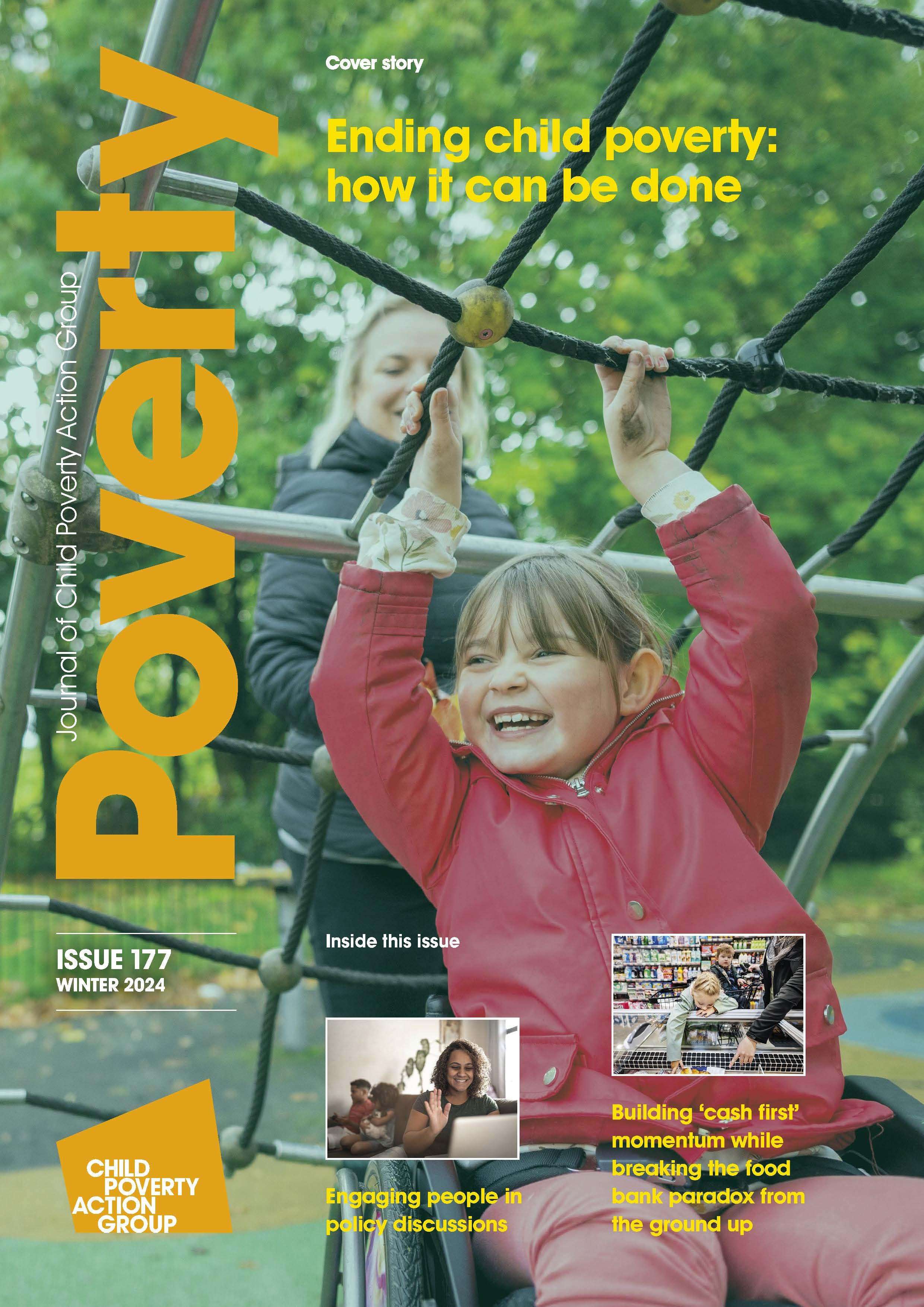CPAG's Poverty Journal
Our journal aims to stimulate debate about the nature, causes and consequences of child poverty in the UK, and potential solutions.

Published three times a year, CPAG's Poverty Journal carries articles and features to inform, stimulate and develop debate about the nature and causes of poverty. Each issue includes three in-depth features, reviews of the latest poverty research, analysis of child poverty statistics, and views from practitioners and young people themselves.
Read articles from current and past issues of the Poverty Journal
Have an online subscription? Read full editions of current and past issues of the Poverty Journal.
Get access to the entire journal with an annual online subscription or an annual print subscription.